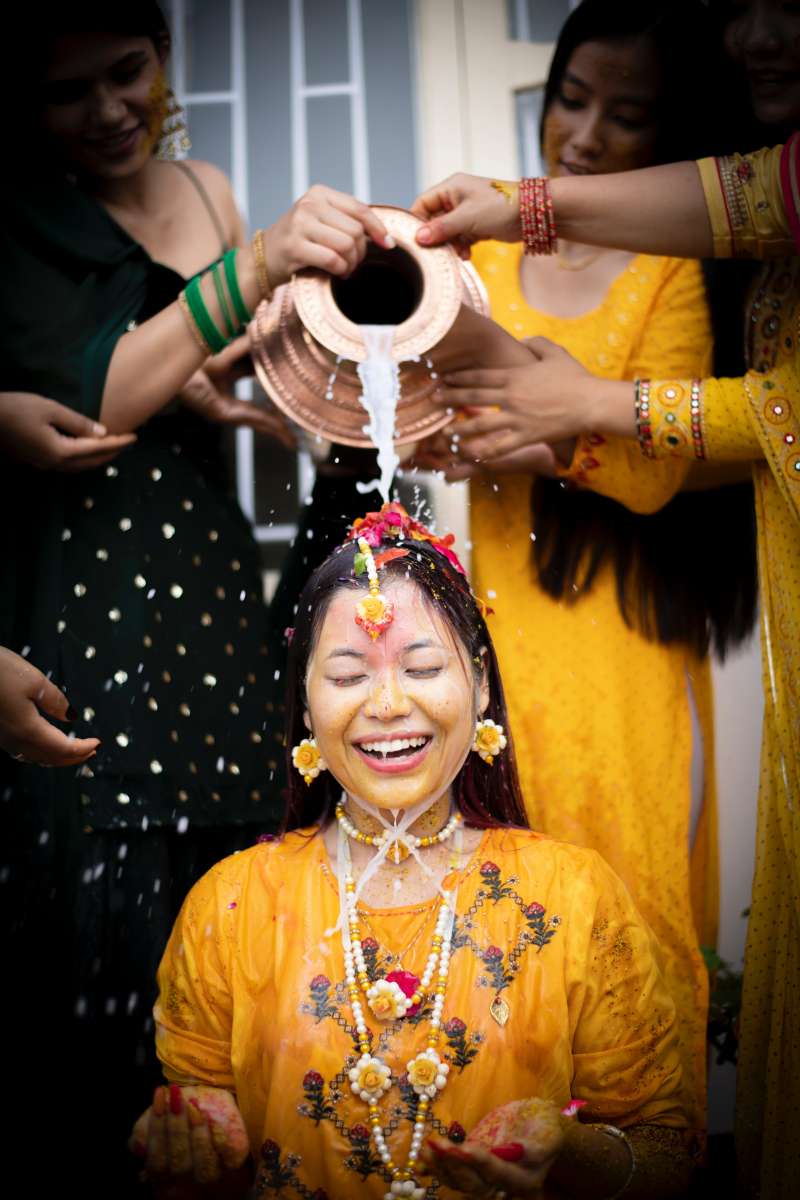The Pani Tula ceremony symbolizes the acceptance of the groom into the bride's family
The Pani Tula ceremony is an integral part of Assamese weddings. This ceremony takes place on the morning of the wedding day, symbolizing the ceremonial purification of the bride and groom, preparing them for the auspicious union. The term "Pani Tula" translates to "water utensil" in Assamese, and the ritual involves the washing of the bride and groom's feet with water and various traditional ingredients.
Typically held separately for the bride and groom, the Pani Tula ceremony is performed by their respective maternal uncles or aunts. It signifies the family's blessings for a pure and harmonious marriage, as well as the transition of the bride and groom from their individual lives to a shared life together. The use of turmeric, considered auspicious, is a common practice during this ritual. The water used for washing the feet often contains pithas (traditional Assamese sweets), betel nuts, and coins, symbolizing prosperity, nourishment, and wealth.
This ritual is not only a visual spectacle but also a heartfelt act that carries immense cultural significance. It is a bridge between tradition and the present, connecting generations and bringing families together. The Pani Tula ceremony embodies the Assamese value of respecting and honoring one's elders, as the elders play a central role in this ritual. Moreover, it emphasizes the importance of humility, purity, and a strong foundation in the couple's journey towards marital bliss.











